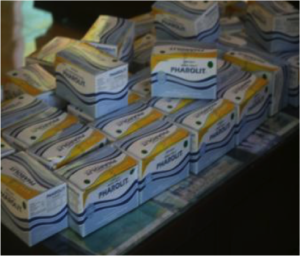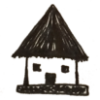 The cost of a readily available brand in Indonesia–called “Oralit”–is about 5000 Rupia or just 60 cents per pack. A full treatment, which uses several packs over several days (depending on the condition), might cost $10-20 in total. Quite the bargain to potentially save a life! (Though one buys the packs in bulk (of at least 1000 packs), with transportation and distribution costs.)
The cost of a readily available brand in Indonesia–called “Oralit”–is about 5000 Rupia or just 60 cents per pack. A full treatment, which uses several packs over several days (depending on the condition), might cost $10-20 in total. Quite the bargain to potentially save a life! (Though one buys the packs in bulk (of at least 1000 packs), with transportation and distribution costs.)
First Round
Our plan is to start out buying 5000 packs at about $3000 (by buying in bulk, we save on transportation costs, which is then about $200 for the whole batch.) In two or three villages, Damien will bring a nurse to the village for a “socialization” (an explanation of what to do and why) and then place a goodly share of packs directly in the hands of the woman of each household for use at the right time. (That will require some help, along with the nurse, at a cost of about $10/day per person. Damien initially plans to bring his brother-in-law or other relatives to help with handing out.)
The villages, in order of priority, are Botohosi (55 households, 250 people), Hilisaloo (70+ households, 300 people), and, if there’s enough, Bawogosali (175 families, 2500 people). Botohosi is about 6 kms away, without good motorbike access, and they’ve had especially bad rounds of diarrhea-related illness and deaths lately. Hilisaloo also has serious and persistent problems.
Later Rounds
The supplies will have to be restocked as they are used for each village. We are planning to offer assurances that more packs will be provided once a family uses its allotted supply, lest quarrels break out between “haves” and “have nots.” (There’s a balance to strike between that assurance and an over-abundance that encourages “misuse” for other purposes. Though of course a certain amount of appropriation is fine, since it may only slightly increase the already low cost of saving a life.)
Measuring Progress
A cool feature of the packs is that, over time, we can record how many are being used and take that data as a measure of improvement among the various longer-term steps we are taking concerning water and sanitation. If fewer and fewer packs become necessary, then progress is being made. If the amount is stable, then we can look for new diagnoses.
